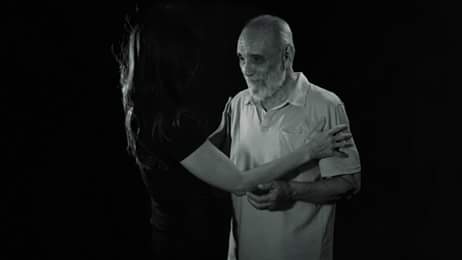
Havana Times, Lynn Cruz, 17 July 2018 — Everybody knows that there has been a upswing of repression and censorship of artists here in Cuba. Within its institutions and recently, censorship of the film “Quiero hacer una pelicula” (I Want to Make A Movie) by Yimit Ramirez, during the previous edition of ICAIC’s Young Filmmakers’ Festival.
This led the young filmmakers and organizers at this annual event to protest against the intolerance of Cuban Institute of Cinematographic Art and Industry (ICAIC) officials, who disrespected the program made by the organizing committee by showing the film in small venue so few people could see it.
Now, with the government’s so-called “constitutional reforms”, Decree-Law no. 349/2018 and its Chapter of Violations has appeared, with a new crime of contempt against artists.
Another attempt to gag Cuba’s artistic community. It’s clear that this new decree-law aims to give a legal framework to the arbitrary measures that were already being carried out by government police and security forces.
The #00 Biennial which took place in May 2018 (an event organized by the Museum of Dissidence and Omni Zona Franca) annoyed government authorities and Ministry of Culture officials because of its financial but also political independence.
Many of those who offered their personal spaces (homes or private studios) were given the same fine that now appears in this “new decree-law”.
It could be deduced then that these were being applied illegally before because this law still hadn’t come into effect yet, or at least nobody had been informed about it. An independent Biennial had never existed before either.
Cuban artists weren’t the only ones who were persecuted, foreign artists who also attended this first independent visual arts event were also persecuted.
In April 2017, the documentary Nadie by Miguel Coyula suffered a police raid and State Security agents prevented the screening from taking place at the La Casa Galeria El Circulo, in the Vedado neighborhood at No. 316 10th street, between 13th and 15th streets. Painter Luis Trapaga and Lia Villares own this space.
During the premiere of my play Los Enemigos del Pueblo, State Security forces and the Police prevented guests from entering La Casa Galeria El Circulo again, where it took place in front of an audience of only two persons. This happened in November 2017.
Artist Tania Bruguera has been harassed, repressed, suffered abuses of power by State Security. All of this as well as her critical path in performance art are a result of her creating the Institute of Artivism which has summoned well-renowned figures from all over the world.
She was recently slandered in Cuba’s official newspaper Granma. Acting with total impunity, the government accused her of being a CIA agent, without giving any proof to support these charges which she has been publicly accused of. Bruguera also received a 1500 peso fine during the #00 Biennial.
Recently, the unfair imprisonment of scientist and writer Ariel Ruiz Urquiola proved how the system oppresses an individual and tries to reduce them to nothing, when the only thing they have done is raise their voice to condemn the government’s injustices.
His release after nearly two months in jail and a year-long sentence also prove Ariel’s brilliance, which are qualities that are much-needed today, and they have made Cubans both in and outside of Cuba aware.
Legitimizing repression is nothing more than a new terror strategy. Obviously, it’s part of art’s job to question an artist’s reality. To exercise their right to be free not only in form but in content too.
Creation can’t exist without freedom, especially if it is created as a means of perseverance and not for lucrative ends. None of these artists I’ve mentioned charge their audience an entry fee.
All of this goes to show the determination of Cubans both on and outside the island, even when they don’t have weapons, governmental or legislative power. We don’t need leaders, but causes. We don’t need to harangue, we need to work.
Cuba’s destiny doesn’t belong to a handful of military men or empowered civilians. Cuba wants to follow the path that Marti once dreamt of for his homeland: “With everyone and for everyone’s wellbeing.”
